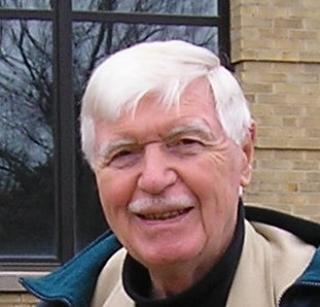Encouraging UU "Spiritual Osmosis"
By Richard S. Gilbert
Liberal religious educators have for centuries sought to help people grow, spiritually and morally. How do we do that? That is one of those questions that empty the room. No one really knows. However, I believe what happens is “spiritual osmosis.”
Osmosis is that chemical/biological process “by which molecules of a solvent tend to pass through a semi permeable membrane from a more concentrated solution into a less concentrated one, thus equalizing the concentrations on each side of the membrane.” Spiritual osmosis might be defined as that process by which values, meanings, and convictions are learned and lived—transferred back and forth between and among persons.The process can be conscious and it can be unconscious. It can be sudden and dramatic; it can be slow and gradual. It can be how a baby learns basic trust in the universe and it can be how an elder takes stock of a life lived.
The teaching-learning process is a mysterious business. We can, however, create opportunities for this process to happen and help shape how it unfolds, thereby helping to transform people and change the world.
I have long felt that Unitarian Universalists needed a fundamental 21st century book on faith development (aka religious education) for preachers and teachers, seminarians and parents, and everyone interested in transmitting values, meanings, and convictions from one generation to another. It should be intellectually respectable, yet user-friendly. That is why I have spent the last several years creating an anthology on UU faith development (In the Middle of a Journey: Readings in Unitarian Universalist Faith Development) and then summed up my own philosophy of religious education in Growing Up Absorbed: Religious Education among the Unitarian Universalists.
Using Walt Whitman’s “A Child Went Forth” as a text, I explore the history of UU faith development and raise some of the central questions for liberal religion. My provisional answers to those questions shape a philosophy of faith development for the 21st century. The practical implications of this line of thinking lead to the termination of “silo” thinking and improve our ability to see faith development at the heart of all that we do.
Confidence in spiritual osmosis is clearly not enough. Religious educators must clarify, symbolize, give words to the values, meanings and convictions that are being absorbed. The church teaches by what it does and how it does it.
Next Steps!
Further explore the author’s ideas on Unitarian Universalist faith development by engaging with one of his books, Growing Up Absorbed or In the Middle of a Journey. The UUA Bookstore also carries two books of meditations by Rev. Gilbert, In the Holy Quiet (2012) and Thanks Be for These (2013).
If you are a UU religious professional, take the Renaissance Program module on UU Identity to strengthen this aspect of your faith development leadership.
Looking for more tools to facilitate the osmosis process? Browse Tapestry of Faith curricula focused on building our spiritual identities such as Signs of Our Faith (grades 2/3), A Place of Wholeness (high school), and What Moves Us (adult).
The stories, readings, and activities provided quarterly in the pull-out Families section of UU World magazine are tools for all ages’ faith development at home; online, you can browse and download (PDF files) archived Families sections on various themes.
Show the world your UU identity with items from the UUA Bookstore: a UU mug,onesies for a new baby, or a chalice for home use.
About the Author
Richard S. Gilbert writes books of meditations while sharing his perspective on social justice and religious education. A retired Unitarian Universalist minister, he holds degrees from St. Lawrence University, Meadville/Lombard Theological School, Starr King School for Ministry, and Colgate Rochester Divinity School. For over a half-century Gilbert has ministered to people of all ages; today, he views “retirement” as just one more opportunity to be absorbed in life. Richard and Joyce Gilbert live in Rochester, NY, where they enjoy time with their three grandchildren.

